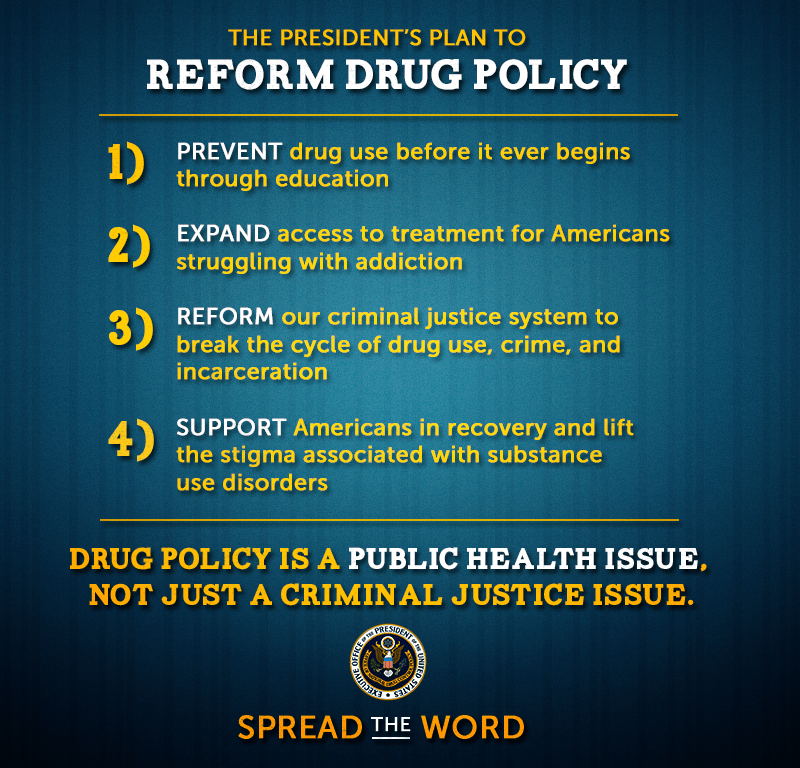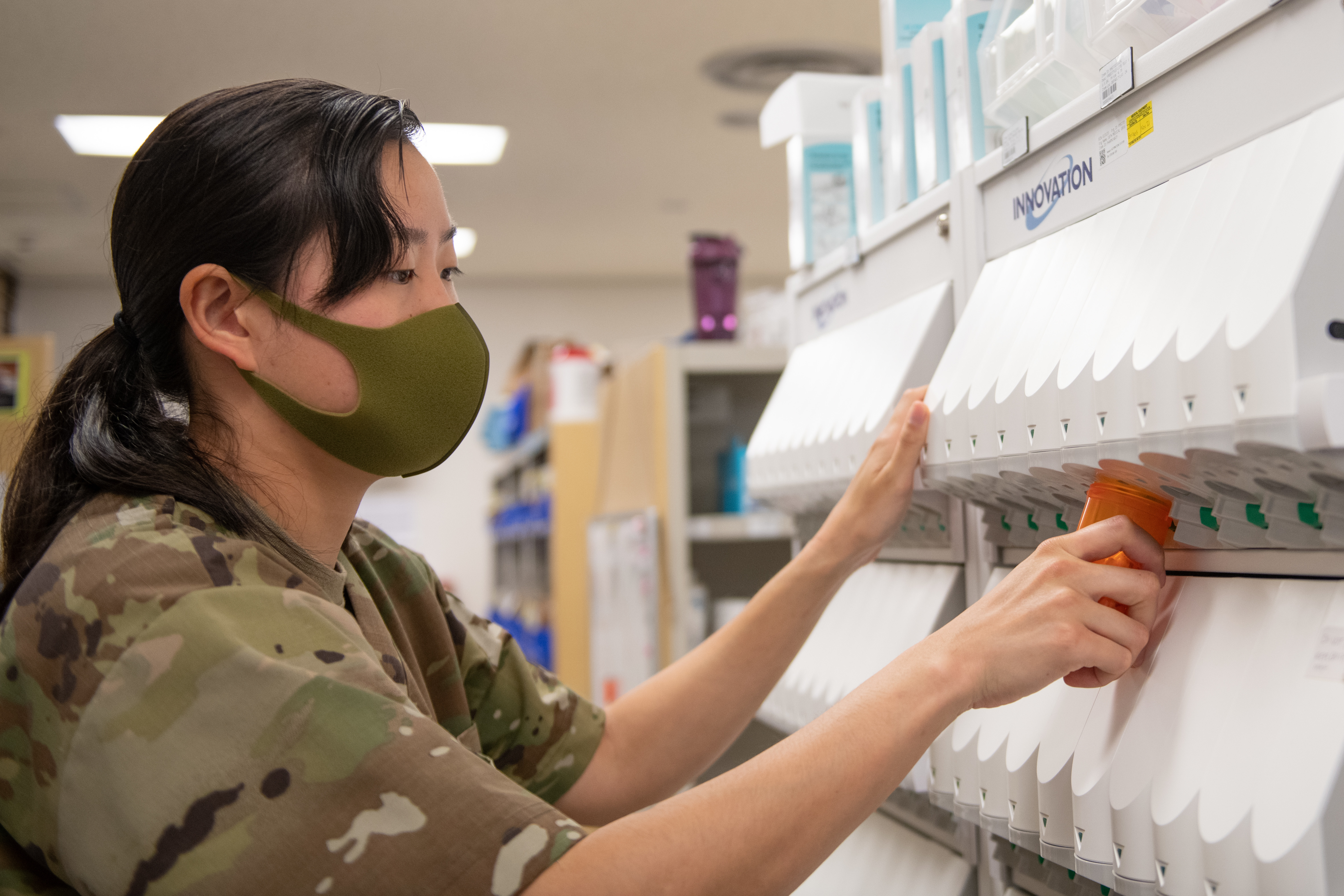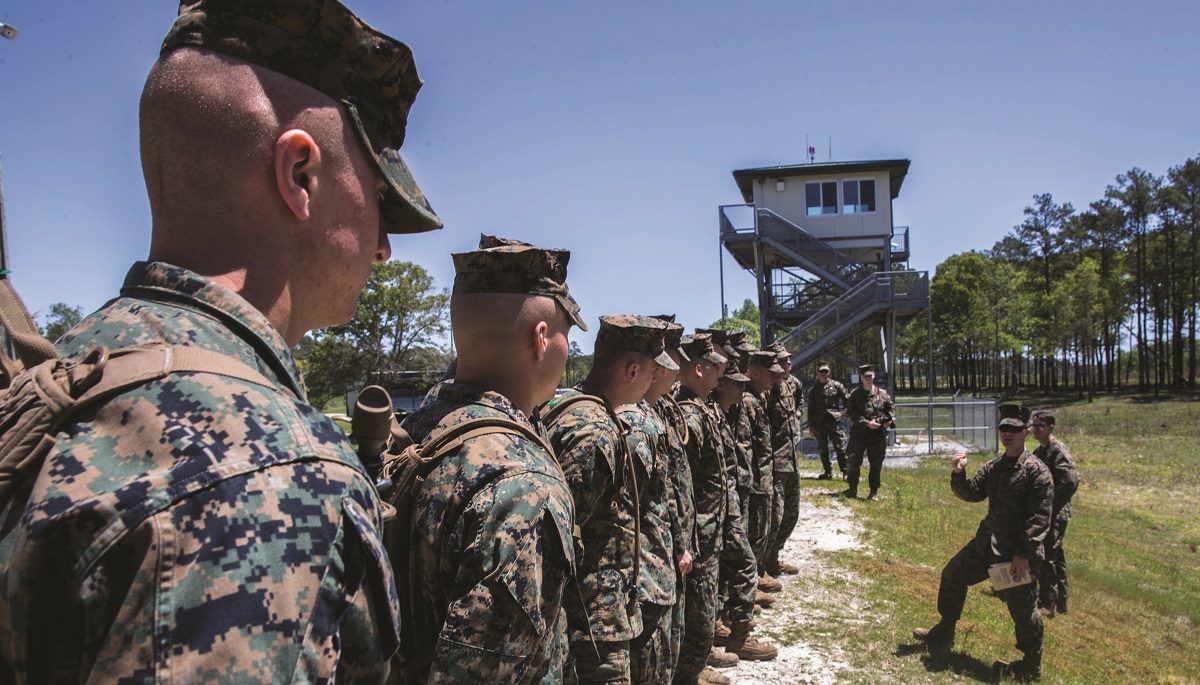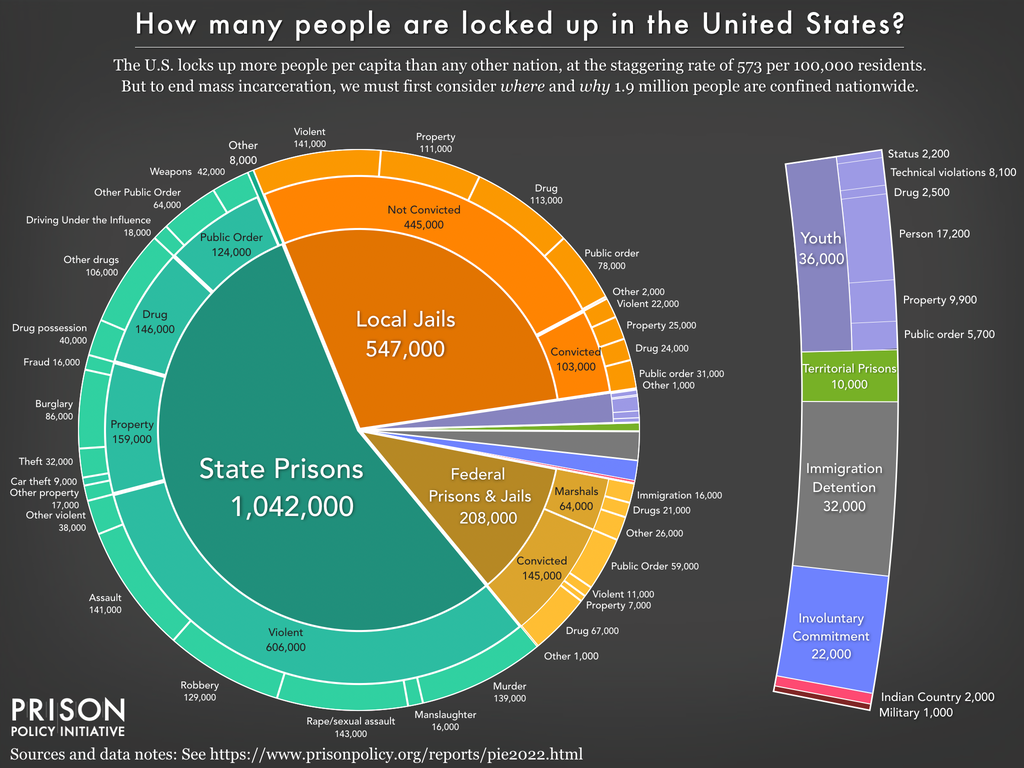Military Drug Policy - This includes resources that can provide medical detox, drug replacement therapy, counseling, residential treatment services, and other forms of care. It makes rehabilitation easier, even in cases where their treatment needs are very specific. Research suggests that few service members with SUDs receive counseling, but there is little research on SUD services received in the military.1 Behavioral interventions for managing SUDs are often cognitive therapy interventions-
behavioral.-contains short-cuts. These interventions focus on identifying and changing unhealthy thoughts and behaviors associated with increased craving, use, or relapse. With some drugs—opioids, alcohol, and tobacco—behavioral counseling is an effective adjunct to approved drug therapy. As with other drugs, such as cocaine and marijuana, there is no drug approved for treatment, so behavioral counseling forms the core of treatment.
Military Drug Policy
 Source: assets.medpagetoday.net
Source: assets.medpagetoday.net
The military offers free counseling services for alcohol and substance use disorders, including smoking cessation support. There are also many services and interventions available to reduce SUDs in the elderly, including both behavioral and pharmacological treatments.
Active Duty
By clicking "continue" below, please be aware that you are leaving the Too Much to Lose website and entering the website of a private organization. You will then be subject to that website's privacy policy and terms of service.
The Veterans Health Administration recognizes that drug treatment for opioid use disorder, including opioid agonists (methadone or buprenorphine), is the first-line treatment for opioid use disorder. opioid use and recommends it for all opioid dependent patients.
Notably, a 2015 review of treatment guidelines for the US Department of Veterans Affairs and the Department of Defense moved toward these medications as a treatment option for active military members.18 However, despite evidence of effectiveness, these medications are used in less than 35% of Veterans Health Administration patients diagnosed with opioid use disorder.19 Barriers to opioid therapy
-opioid agonists among VHA providers include lack of patient interest, stigma toward the patient population, and lack of education about opioid agonist therapy. However, the irregular use of these drugs can lead to complete dependence and drug-seeking behavior.
Addressing The Problem
Additionally, the lack of access to affordable and effective drug treatment and rehabilitation for veterans may exacerbate the substance abuse problem among US veterans. While many treatment centers do not offer these medications, the National Academy of Sciences recently released a scientific report that found that drugs for substance use disorders are effective, save lives, and have
 Source: www.chicagoappleseed.org
Source: www.chicagoappleseed.org
better results than treatment without drugs.23 Treatment. with behavioral therapy it can reinforce treatment goals, rebuild relationships with friends and family, and build healthy life skills. In addition, a higher proportion of people with coronary heart disease are smokers, compared to civilians with a similar diagnosis.
to increase access to tobacco cessation treatment options, 9 provides some results. Unfortunately, there is a long history of alcohol and drug abuse in the military. Exposure to combat and frequent deployments can put service members at increased risk of substance abuse such as drugs and alcohol.
Where do service members get prescription pain pills? To treat underlying conditions such as PTSD and chronic pain, veterans may be prescribed anti-anxiety and anti-anxiety medications. The unhealthy increase is driven by the widespread availability and easy access resources for military personnel, which has increased the number of prescriptions for opioid painkillers.
Illicit Drug Use
The trend is worrying. Addiction Resource is an educational platform for sharing and disseminating information about drug and addiction recovery centers. Addiction Resources is not a health care provider, nor does it claim to offer sound medical advice to anyone.
Addiction Resource does not endorse or support any particular recovery center, nor do we claim to endorse the quality, accuracy or effectiveness of any particular treatment center. Individuals should treat the information provided on Addiction Resource as authoritative and should always disregard the advice and care provided by a physician.
More than one in ten veterans have been diagnosed with substance use disorders, slightly higher than the general population.3 One study found that the overall prevalence of substance use disorders (SUD) among male men was lower than the rates among their civilian counterparts.
all ages were examined together. However, when looking at the model only for male veterans aged 18-25, the rates were higher among veterans than civilians.3 The veteran population is also affected by several critical issues related to the use of

Among Active Duty Personnel
' substances, such as pain, the risk of suicide also greatly affected. , trauma and homelessness. A 2012 Institute of Medicine (IOM) report identified several barriers to substance use disorder treatment among active duty military personnel and veterans, including limited access to treatment, shortages
in insurance coverage, stigma, fear of negative consequences and lack of secret services. . The report offered solutions, including increasing the use of evidence-based prevention and treatment and expanding access to care. The report also recommended expanding insurance to cover effective outpatient treatments and improving health care providers to identify and track drug use problems so they can refer patients to
appropriate evidence-based treatment when necessary. The IOM report also notes that addressing drug use in the military will require increased privacy and changing a cultural climate in which drug problems are stigmatized and people who suffer from them are feared.
' deal with severe stress. The psychological scars of traumatic situations and the pain that remains from physical injuries can lead people to turn to illegal substances. Mental illness, PTSD, and substance abuse are all associated problems in this group of people.
What Are Considered “Legal” Substances?
However, the National Council on Alcoholism and Drug Dependence reports that veterans' use of illegal drugs, including marijuana, methamphetamine, heroin, and cocaine, is lower than the national population. There are no consequences for veterans who come forward about their substance use issues.
Therefore, they are encouraged to contact the Veterans Administration drug rehabilitation program to get the help they need. Rates of illicit drug use among active duty service members have declined in recent years and were at lower levels in the 2015 Health Behavior Survey (HRBS) than
in the 2011 survey. The HRBS is the leading survey for understanding the health, health behaviors and well-being of service members funded by the Department of Defense. It should be noted that the survey relies on self-reporting, and the response rate is low, at 8.6%.2 However, it provides an overview of substance use among active duty personnel.
 Source: cloudfront-us-east-1.images.arcpublishing.com
Source: cloudfront-us-east-1.images.arcpublishing.com
Substance use is a common predictor of suicidal behavior in the military. Approximately 30% of military suicides and more than 45% of suicide attempts since 2003 involve the use of alcohol or drugs.3 In addition, 20% of deaths in
Suds Ptsd And Depression
' high risk are due to alcohol or drug overdoses.3 Treatment for a variety of substance use and mental disorders is available through military health systems and has been shown to be effective. Treatment includes behavioral interventions and medications when available.
All treatment should be individualized, including approved drug options for patients with alcohol, nicotine and drug use disorders. Studies show that more than 40 percent of US military veterans suffer from an alcohol use disorder at some point in their lives.
Veterans tend to hide drug and alcohol problems, eventually manifesting in risky behaviors such as binge drinking and domestic violence. Self-medication with alcohol is also common to treat PTSD. The 2018 Health Survey from the Department of Defense found that only 1.3 percent of military personnel had engaged in illicit drug use in the past twelve months.
It corresponds to 19.4% of the total population. It shows that the consequences of drug use in the military are likely to be very effective deterrents. It is estimated that between 37 and 50 percent of Afghanistan and Iraq War veterans have been diagnosed with mental illness.11 These conditions are strongly associated with substance use disorders.
Veterans Administration Drug Rehab
(SUDs), as well as other problems experienced by military personnel. , including reintegration stress. , sleep disorders, traumatic brain injury (TBI), and relationship violence. The onset of SUD can also occur secondary to other mental health problems associated with these stresses, such as post-traumatic stress disorder (PTSD) and depression.3 Our authors and researchers are involved in
-medicine, addiction treatment and health care are experienced professionals. . AddictionResource checks all information before publication and uses only reliable and trustworthy sources when citing medical data. The Verified Note on our articles is a reliable indication of the most comprehensive scientific medical content.
 Source: static01.nyt.com
Source: static01.nyt.com
If you are concerned that our content is inaccurate or should be updated, please notify our team at [email protected] With the number of serious lung diseases and deaths reported from vaping in 2019 increasing, the Service members and their families were officially warned of the dangers, and encouraged not to use electronic cigarette products.28 Later, in October 2019, the Army, Air Force and
Navy banned the sale of vaping devices from retail stores on bases.kir.29 There are many types of substances that can be used or abused; each has dangerous implications for the health of service members. While many of these hazardous substances are illegal, legal substances can also be dangerous if accidentally handled or used in large quantities, and their use is prohibited or restricted by the DoD.
Veterans And Ptsd Increasing The Risk Of Addiction
These legal provisions include: Among recent veterans of Afghanistan and Iraq, 63% diagnosed with SUDs also met criteria for post-traumatic stress disorder (PTSD). , liver disease, HIV, schizophrenia, anxiety disorders, and bipolar disorder.3 Suicide deaths among the military and veterans are higher than the general population.
In 2014, veterans accounted for 20 percent of national suicides, with an average of 20 veterans dying by suicide each day.14 In 2016, the suicide rate for veterans was 1.5 times higher than for non-veteran adults, after adjusting for age.
and sex. sex.13 Calls to our public line may be answered by private treatment providers, including Legacy Healing Center. We may be paid a marketing or advertising fee by organizations that may assist in the treatment of individuals with substance use disorders.
Service members can face dishonorable discharge and even criminal charges for a positive drug test, which can encourage illegal drug use. When active duty personnel leave the military, some of the protective effects are lost, and drug use and other mental health problems become more of a concern.
Causes Of Veteran Alcohol Abuse And Drug Abuse
There are three FDA-approved medications that offer options for treating opioid addiction, depending on individual needs. Buprenorphine and methadone are drugs that bind to the same brain receptors as opioids, called opioid agonists or partial agonists.
 Source: static.prisonpolicy.org
Source: static.prisonpolicy.org
Naltrexone is another drug that treats opioid addiction, but it is called an antagonist, which prevents the effect of opioids on the brain. In addition, the Food and Drug Administration recently approved a drug called lofexidine to make it easier for people trying to stop using opioids, which should be followed by joining the treatment.
PTSD and addictive disorders often go hand in hand. People with PTSD are two to four times more likely to struggle with addiction. Among veterans with PTSD, 27 percent have a substance use disorder. PTSD, substance abuse, and addiction have a complex relationship that makes treatment difficult.
The distressing symptoms of PTSD can cause a veteran to use drugs or alcohol as a temporary escape, especially considering that the military's relatively lenient alcohol policy can prevent them from turning to alcohol. High levels of stress in veterans can cause them to turn to drugs and alcohol for relief.
Va Substance Abuse Programs
Access to prescription opioid painkillers for combat-related injuries makes veterans more likely to misuse them. Drug addiction is a condition that can happen to anyone, be it drugs or alcohol. However, addiction disorders are very important for military veterans.
Members often resort to heavy alcohol consumption as a means of recreation and stress relief. Members on active duty are sometimes offered discounted alcohol. The military's alcohol policy is relatively lax. If you're a veteran in crisis—or you're worried about one—free, confidential support is available 24/7.
Call the Veterans Crisis Line at 1-800-273-8255 and press 1, text 838255, or chat online. (Weblink: https://www.mentalhealth.va.gov/MENTALHEALTH/suicide_prevention/index.asp?_ga=2.148689847.1256300298.1556635434-1259975347.1556635434) Department of Veteran, alcohol abuse is also Veteranized abuse by a Veteran. United. One of the government's official resources, the Alcoholic Rehabilitation and Treatment Program, provides relief for those who qualify for the program.
To qualify for this Veterans Administration rehabilitation program, the individual must be enrolled in the health care system under the V.A. be registered. A 2017 study that examined research from the National Survey on Drug Use and Health Data found that, compared to their non-veteran counterparts, veterans were more likely to use
What Is The Department Of Defense’s Policy On Legal And Illegal Substances?
alcohol (56.6% vs. 50.8% during one month), and report being pregnant. alcohol use (7.5% vs. 6.5% in one month).3 Sixty-five percent of veterans who entered a treatment program reported alcohol as the most frequently abused substance
theirs. report, which is almost double the general population. 5 You may not take anxiety medication during active duty. However, if you have already been diagnosed with an anxiety disorder, if you have not needed treatment in the last three years and for more than 12 months in total, you can be in the armed services.
Binge drinking, heavy drinking relapse, and prescription drug misuse are highest among military personnel with multiple deployments and exposure to active combat. American soldiers deployed in Iraq and Afghanistan can also obtain alcohol even in Muslim countries where access to alcohol is controlled.
Liquor is sold on US bases for less than civilian stores. Barracks parties are an accepted part of military culture and are thought to help relieve the stress of the battlefield.
Underage Drinking In The Military
alcohol and drug abuse in the military, army drug and alcohol policy, military drug and alcohol policy, army policy on drugs, military pharmacy formulary list, army drug use policy, drug use in the military, dod drug policy